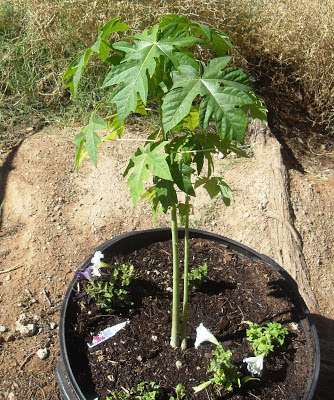While looking at some other books about gardening and vegetable breeding, I happened upon this book by Jane S. Smith. It tells about Luther Burbank, a plant breeder who lived the majority of his life in California around the turn of the 20th Century. Burbank was given the opportunity to follow his passion and, despite how others feel about him, helped to show that, with concerted effort, one can make a living breeding plants. Although parts of the book were laboriously boring, other parts were quite interesting.
What Luther Burbank is widely known for is for the developing of the Russet Burbank potato – the most common potato in the U.S. He happened to find a seed pod growing on another potato variety and, by saving the seeds and planting them selected a potato variety that produced, and kept well, peeled easily, was decently dry, and happened to be resistant to potato blight. One other really fun story was when Luther Burbank grew out thousands of plum trees in a single season by grafting them to almond seedlings.
Of all the quotes from this book the one I related to the most comes from an address Burbank gave to the American Pomological Society in 1895 on “How to Produce New Fruits and Flowers”. During his address he noted that we must, “listen patiently, quietly and reverently to the lessons, one by one, which Mother Nature has to teach… she conveys her truth only to those who are passive and receptive”.
As I came close to the end of this book I thought about whether Luther Burbank was a good or bad for long-term gardening. I believe he was both. He made it possible for seed breeders to make a living by supporting patients on plants and by hybridizing plants. What large companies have done with this have been to work harder to protect current varieties than actual help society with the varieties they produce. The unintended consequence of hybridization is losing seed stock to varieties that may grow better- for only one season. Another negative consequence of Burbanks efforts are that, in creating new and better varieties, no one is willing to preserve the seed of old varieties that may enable the future survival of many plant species.
The positive consequence of Burbanks work is that we now have, from his efforts, many beautiful flowers as well as big, flavorful fruit. Additionally, many Americans have access to fruits and vegetables from around the world that were introduced by Burbank himself. Luther Burbank defined what it means to be a high-quality plant breeder and worked hard to ensure that many of his creations were both a source of nourishment and beauty for society.




























